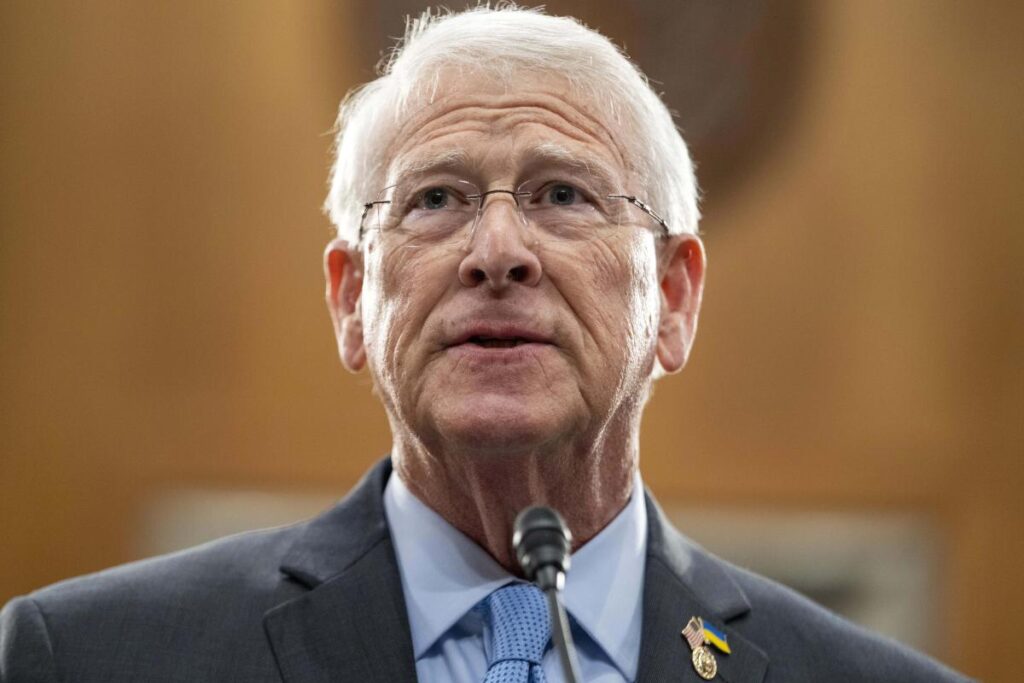Republican Senator Roger Wicker of Mississippi is in the midst of his campaign to extend a prominent political career that has spanned three decades. Currently facing limited competition from Democrat Ty Pinkins in a state dominated by Republican politics, Wicker is seeking re-election in a landscape that has significantly favored his party. At 73 years old, Wicker’s political journey began when he was elected to the U.S. House of Representatives in 1994 and subsequently appointed to the Senate in 2007 after the resignation of Trent Lott. Besides his rich experience as a legislator, Wicker’s legal background and committee leadership, particularly as the ranking member of the Armed Services Committee, have kept him at the forefront of key national issues.
Despite his long tenure and the advantages of incumbency, Wicker faces a formidable challenge in Ty Pinkins, a 50-year-old attorney who previously ran for the position of Mississippi Secretary of State. Pinkins has brought to the forefront issues such as poverty alleviation and improving health care access. However, unlike Wicker, whose campaign has enjoyed endorsements from high-profile figures such as former President Donald Trump, Pinkins has struggled to secure substantial financial backing from the Democratic Party, reflecting the uphill battle he faces in a Republican-dominated state.
A significant aspect of their campaign contest involves their contrasting views on abortion rights, a topic that has polarized opinions across the nation. Wicker has publicly supported the Supreme Court’s decision to overturn the 1973 ruling that legalized abortion, framing his stance within a larger advocacy for pro-life policies, while Pinkins has denounced this decision. His view underscores a belief that decisions regarding abortion rests solely between a woman, her medical provider, and her personal beliefs, stating that as a male, he feels unqualified to dictate or influence a woman’s choice regarding her body.
Pinkins’ perspective outlines a stark divergence from Wicker’s more traditional pro-life approach and reflects a broader debate in American society regarding reproductive rights. His commitment to supporting both pro-life and pro-choice women signals an intention to foster inclusive dialogue rather than impose a singular ideological viewpoint. This framing of the abortion debate highlights a critical dividing line between the candidates that may resonate with voters and influence the outcome of the election.
Mississippi’s political history is heavily colored by partisan control, with Republicans overseeing all statewide offices and holding the majority in the state legislature, which places Wicker in a favorable position. The last time a Democrat served as a U.S. Senator from Mississippi was John C. Stennis, who left office in January 1989, showcasing how entrenched Republican dominance has been in the region for decades. This context poses challenges for Pinkins, who not only seeks to rejuvenate Democratic representation but must also overcome the historical patterns littered throughout the state.
Ultimately, the contest between Wicker and Pinkins will not only affect the personal careers of the candidates but may also have implications for the broader political landscape in Mississippi and national conversations surrounding issues like health care access and reproductive rights. As the campaigns unfold, the contrast in their narratives, endorsements, and policy proposals will be critical to understanding the electoral dynamics at play. The outcome could reflect shifts in voter sentiment that encompass the complexities of identity, social values, and partisan loyalty in Mississippi.

